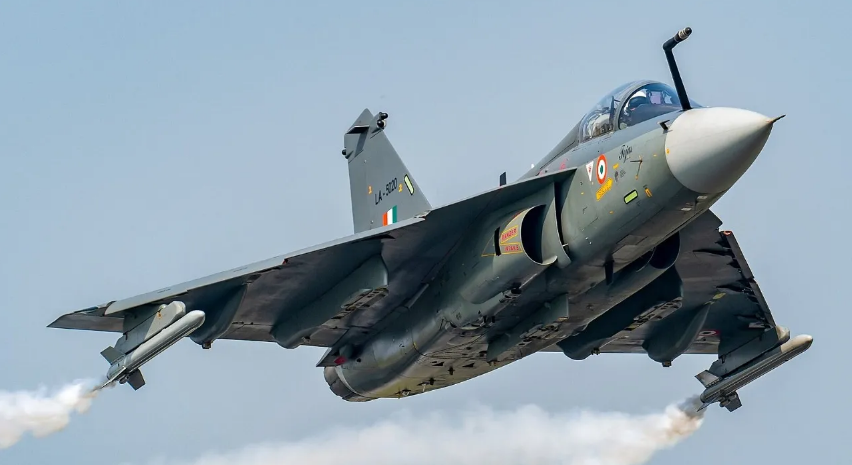New Delhi: Fresh concerns have emerged over the reliability of India’s indigenous Tejas Mk-1 fighter jet after one of the aircraft crashed during the recent Dubai Air Show. The single-engine, fourth-generation jet has attracted interest from multiple countries including Argentina, Egypt, Nigeria and the Philippines, and the incident is expected to influence future export decisions. Defence experts, however, point out that leading platforms such as the F-16 and Rafale also recorded a higher number of crashes during their early operational years. The Indian Air Force (IAF) currently operates two squadrons of the Tejas Mk-1.
The Tejas programme began flight testing in 2001 and has logged an estimated 18,000 flying hours so far. This is the second crash reported since its induction, with the first occurring in March 2024 in Jaisalmer, Rajasthan. Aviation safety assessments are typically based on the number of “Class-A accidents” per 100,000 flight hours. Historical data shows the U.S.-built F-16 recorded up to 621.11 accidents per 100,000 hours in its initial operational year before stabilising to an average of 3.55, while France’s Rafale has recorded between 1.73 and 3 such accidents per 100,000 flight hours.
Based on available estimates and two recorded accidents, Tejas currently stands at a projected rate of 11.1 accidents per 100,000 flight hours. While the figure is higher than mature platforms like the Rafale, analysts note that the Tejas, like Pakistan’s JF-17 and other relatively new fighters, has not yet completed 100,000 flight hours—making long-term reliability assessments incomplete. The JF-17, which has logged between 19,000 and 25,000 flight hours since 2007, has experienced six crashes, translating to roughly 26.3 accidents per 100,000 hours.
Meanwhile, the incident has renewed debate over delays in Tejas production and concerns regarding Hindustan Aeronautics Limited (HAL). In February, Air Chief Marshal A.P. Singh publicly expressed dissatisfaction over HAL’s inability to meet delivery commitments. Despite promising 11 Tejas Mk-1A aircraft by February 2025, none have been handed over to the IAF yet due to earlier delays in sourcing GE-F404 engines. Although four engines have now arrived, no aircraft have been delivered. With ageing MiG fleets being phased out and squadron strength declining, defence analysts say restoring confidence in Tejas will require faster production timelines and proven operational reliability.






